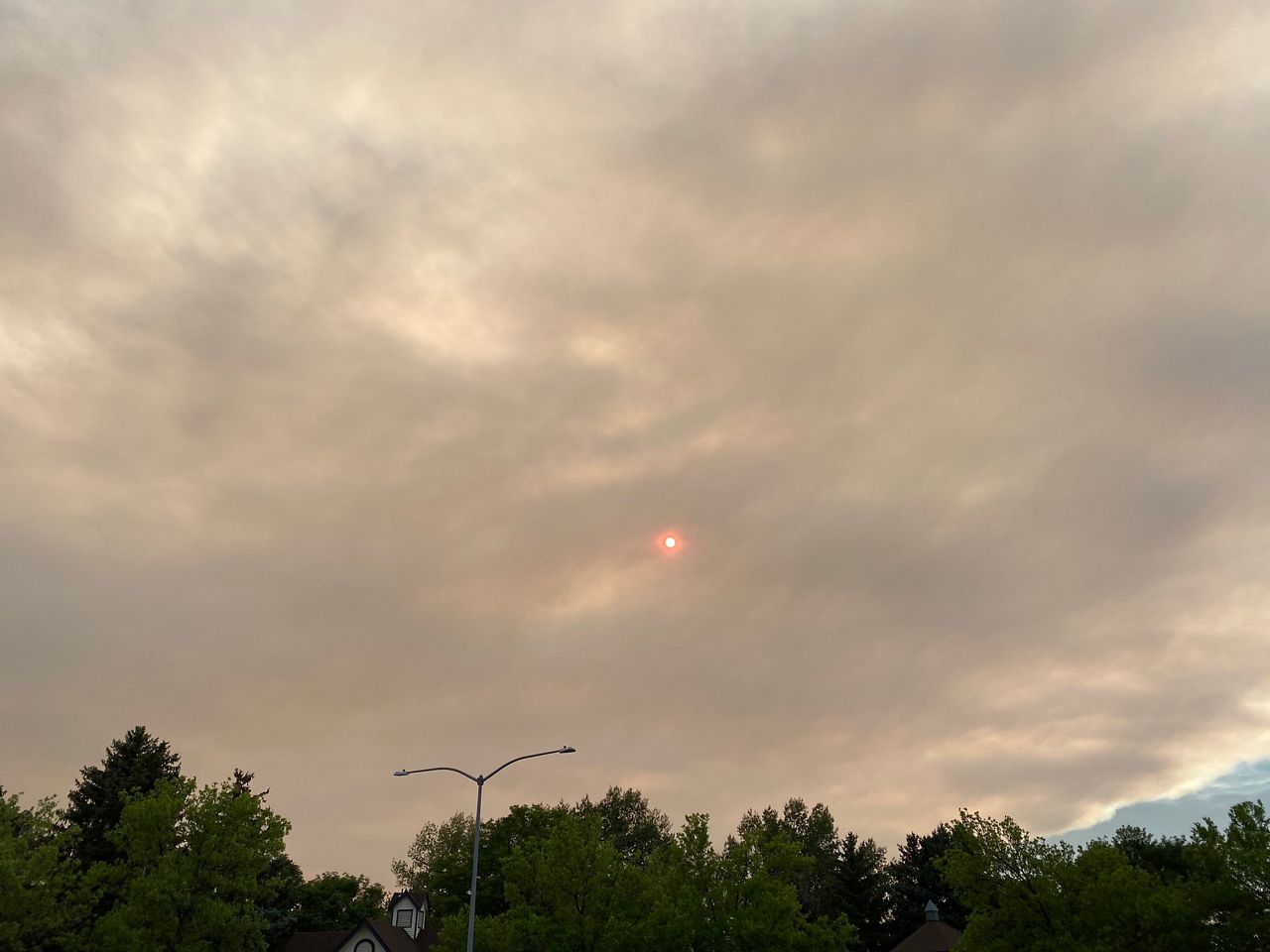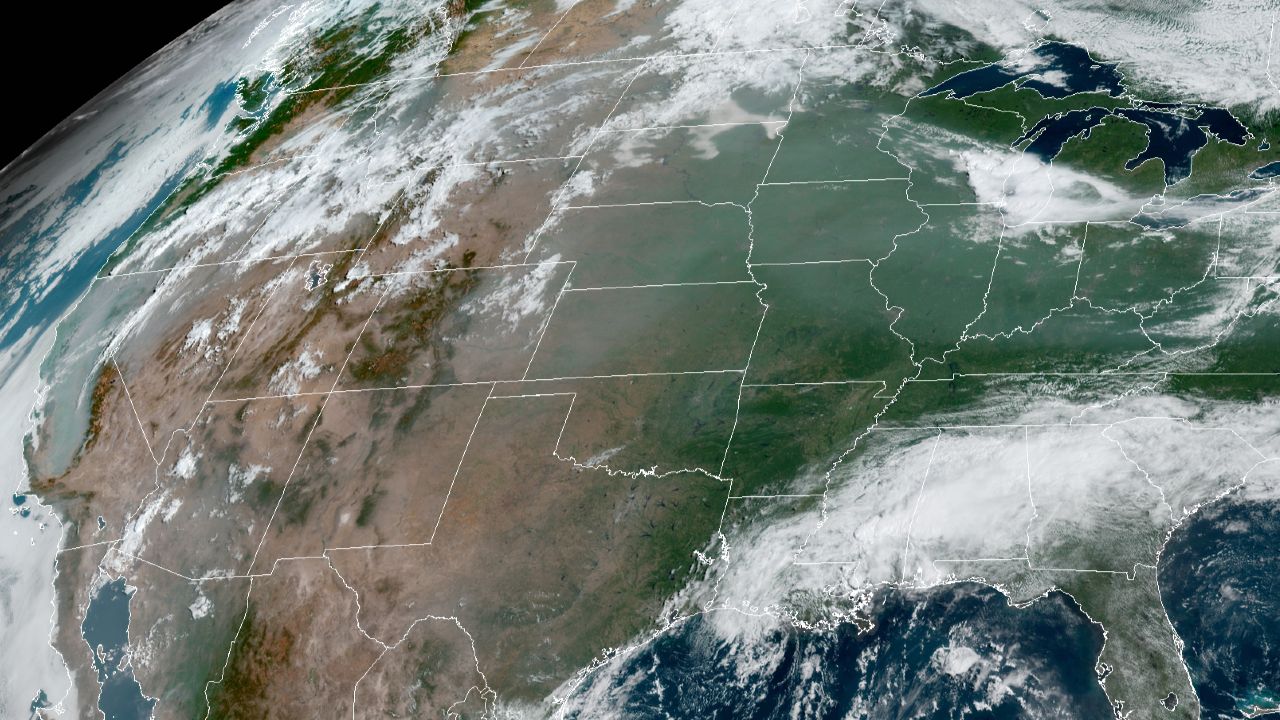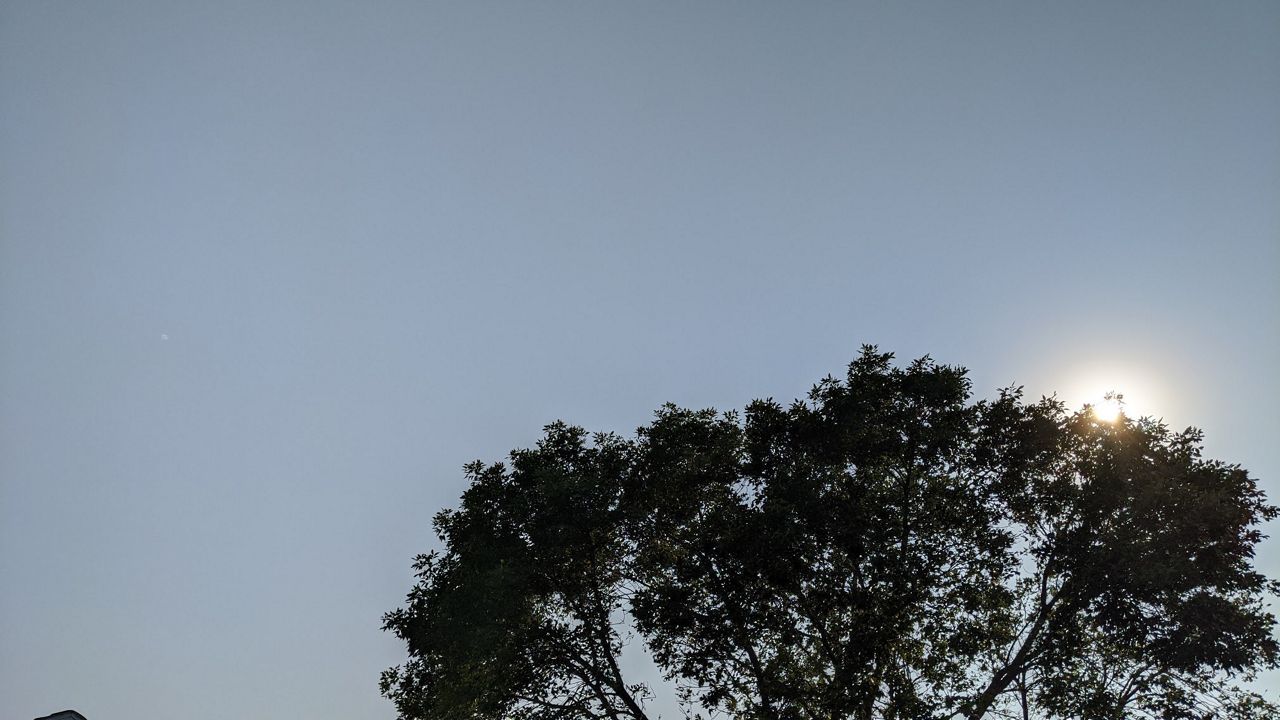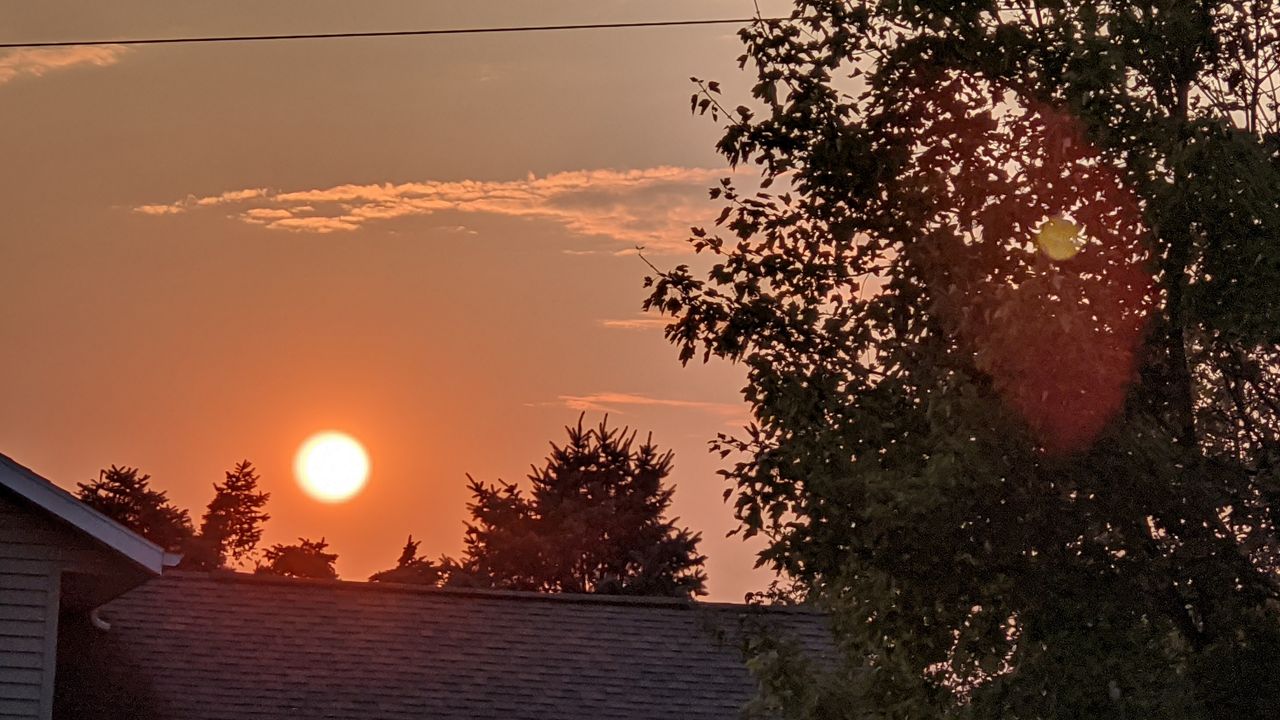Large wildfires in California and Colorado have spread smoke thousands of miles away.
Lightning began sparking fires in California on August 15, starting hundreds of fires. Since then, more than a million acres have burned, according to Cal Fire. Two fires alone have burned more than 700,000 acres.
Robert Santos, a chief meteorologist at Spectrum News, says the fires could have been even worse. "The fires in northern California were not driven by strong winds. The fires may have generated some outflow winds, but the flames were mostly fueled by heavy timber that hadn't burned in 100 years plus thick undergrowth and steep terrain."
Fires in Colorado have also ignited, including one that’s burned about 130,000 acres.
Close to the fires, the smoke is thick enough to blot out the sun.

As the smoke has risen higher into the atmosphere, it’s hitched a ride on the jet stream, a fast-moving river of air thousands of feet up. The veil of smoke has made it as far east as the Midwest and Great Lakes.

Fortunately, it’s high enough in the air in those places that it’s not causing significant problems such as respiratory issues.
It does still influence the weather, though. The most noticeable effect is more vivid sunrises and sunsets. The smoke makes the sunlight appear more orange or red than usual.
During the day, a sunny sky is a milkier color than the usual bright blue. Depending on how much smoke there is, it can reflect enough incoming light to possibly keep the temperature just a little bit lower than it otherwise would be.




